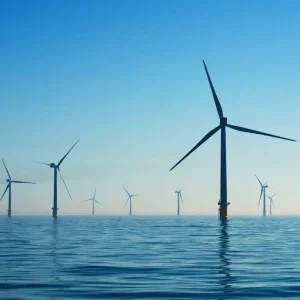
Last Energy, which designs, manufactures and commercializes a new fully modular small nuclear reactor, and Enea Group, a leader in the Polish power industry, today signed an agreement to jointly pursue the development of Last Energy’s 20 MWe small modular reactors in Poland. The agreement aims to expand the country’s access to clean, affordable power. The letter was signed at a public ceremony at Congress 590 in Warsaw with Polish Deputy Prime Minister Jacek Sasin, who also serves as Minister of State Assets.
“This is a historic moment. We show that in practice we are building Poland’s long-term energy security,” said Deputy Prime Minister Jacek Sasin, Minister of State Assets. “We want nuclear energy – the traditional, large and state-built energy, as well as the micro-dimension – to be our future. Congratulations to Enea on finding a good and reliable partner who will help and guide them. This is the time that will decide whether we will win this race and Poland will retain its energy security.”
Enea, a majority state-owned company and one of the largest energy companies in Poland, supplies energy to over 2.7 million customers across the country. The company is focused on the nation’s energy security, which is a chief concern as the nation transitions away from coal-fired power and reduces its reliance on imported gas and coal. Enea’s agreement with Last Energy is aligned with Enea’s Development Strategy, which provides for the creation of new business lines and aims for carbon neutrality by 2050. To achieve net-zero emissions by 2050, experts say that Poland’s rate of decarbonization should advance by a factor of four over the next eight years. Last Energy’s small modular reactors promise zero-carbon power innovation, in addition to low-cost power for the long-term.
Last Energy provides the full cycle of nuclear project development for customers like Enea – including design, construction, financing, service and maintenance of installations, fuel supply and waste collection and decommissioning of the power plant at the end of its operation. The company’s power plant leverages a proven pressurized water reactor and fully modular plant design, a unique approach that dramatically reduces the time and cost of building nuclear power plants while delivering clean baseload energy. Using industry-proven technology and best practices across industries, Last Energy’s development model aims to deliver a power plant within 24 months of signing.
“An urgent investment in nuclear generation capacity will allow countries to quickly diversify their energy mix and solidify zero-carbon energy security for our future generations,” said Bret Kugelmass, CEO, Last Energy. “It’s incredibly encouraging to see this type of leadership from an organization like Enea, who shares our vision for affordable, clean and efficient baseload power. Scaling small modular nuclear power isn’t 10 years away. The technology is proven and ready, now. We are proud to bring our innovative delivery model together with Enea’s deep utilities expertise to usher in a new era of energy independence for Poland.”
Last Energy is also in talks with governments, regulators and commercial energy partners across Europe, Latin America and Asia. In March of this year, Romanian Prime Minister Nicolae Ciuca announced his country’s intention to work with Last Energy to develop its innovative small modular reactor at the Mioveni site in that country.
“With Last Energy, we will gain access to modern, scalable and, most importantly, emission-free electricity generation technology,” said Pawel Majewski, CEO, Enea. “Enea Group will be able to use the small modular reactor technology to build its own production capacity, and also to offer solutions for the industry and for Poland. Commercialization of SMR solutions will have a positive impact on energy security, the environment, and the competitiveness of the Polish economy. Enea’s entry into the market of small, modular nuclear reactors will allow for the development of new business lines in the future.”






